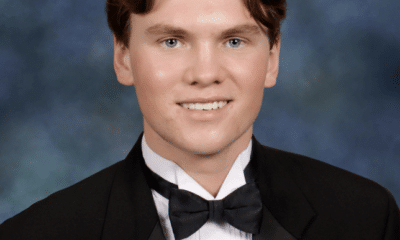Business
The Colorful Woven Threads that Make Up the Fabric of Our City
Published
5 years agoon
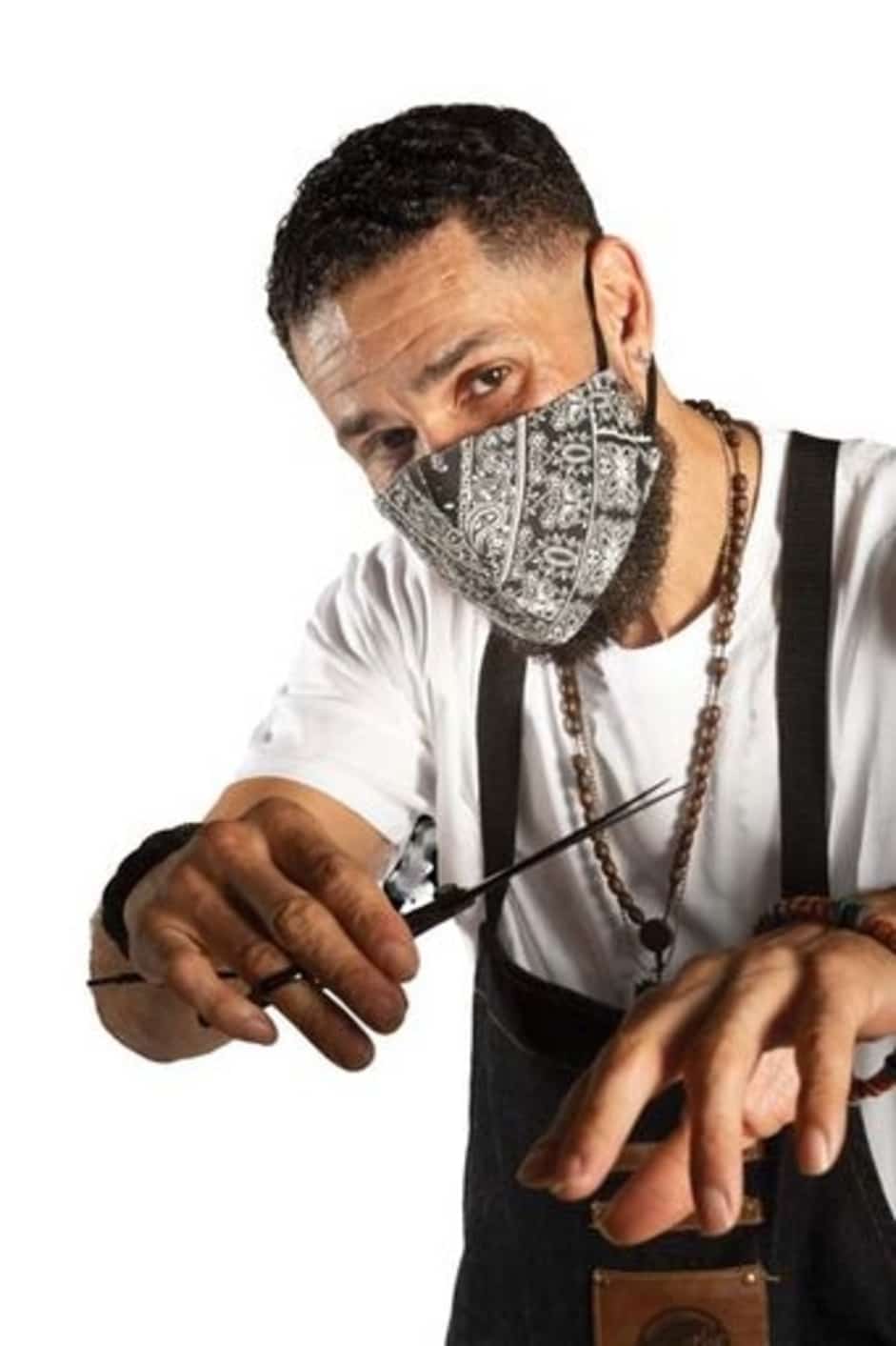
Gwinnett County is getting more and more culturally and racially diverse. Remember the old adage ‘Variety is the spice of life’? In today’s climate of social unrest and world-wide protests for racial justice, we should move towards healing by getting to know our neighbors and broaching some delicate conversations. It can be scary and cathartic — and it can be a little heartbreaking, too.
The heartbeat of Peachtree Corners is strong because of the amazing people who live and work here. I reached out to some from a variety of backgrounds. Each of their accounts will have you shouting, Vive la différence!
No matter what their jobs, ages, political leanings, religious beliefs, ethnicity or color of their skin, each one has essentially come to the same conclusion with regard to moving forward through the turmoil that has been unleashed in the wake of George Floyd’s death. It’s a focus not on what divides us, but on what can bring us all together. It’s the inevitable acquiescence to an aphorism anyone can support — love is always the answer.
Jay Patton

Traditional Master Barber Jay Patton moved to Peachtree Corners two years ago from Minneapolis, Minnesota. He noted that his hometown is less diverse, primarily Caucasian, and he’s been enjoying the “good mix” of people here.
“In Minnesota, growing up, there was more racial tension,” Patton said. He felt a larger divide between the privileged and the underprivileged. “There’s less opportunity for certain people in certain states. You come down here and if you have a good credit score, you blend in as long as you’re putting out good vibrations,” he explained.
At your service
After working near Perimeter Mall for five years at Gino’s Classic Barbershop, he decided to venture out on his own. “One of my customers told me about Blaxican,” Patton said. The fusion restaurant serves food inspired by Southern soul cooking and Mexican classics. “Being biracial, I thought that concept was catchy. I came here, drove around a bit and I felt good energy,” he recounted.
Patton opened Traditional Shave Masters Barbershop at 5260 Peachtree Industrial Boulevard. “This area is blowing up. I think it’s going to be bigger than Sandy Springs,” he said. He likes the plans for the area.
The barbershop offers “male services — straight edge razor work, blades, steam towels, shaving beard work. With different packages to choose from — like The Distinguished Man, The Exquisite Man, The Classic Man — there’s something for everyone. Female clients with short hairstyles are welcome too,” Patton said. “We have competitive prices and talented, diverse barbers.”
Things had started picking up well, “and now we’re going through this Corona stuff. It’s pretty challenging,” he shared.
Cutting through racial lines
Patton prides himself on being able to serve the whole community, no matter what race, background or ethnicity. “Most shops are racially separated. People are more comfortable coming in when they see people who look like them,” he said. “I want everyone to look in the window and feel like they can come in. I play jazz music. Everyone likes the smooth, mellow stuff.”
Men have different ways to describe how they want their hair and beards trimmed, depending on their ethnicity, where they’re from, race and even social status, according to Patton. “It’s up to the barber to ask the right questions to really understand what the client wants so you can hook him up,” he said.
He noted that since the rock and roll era, when men grew their hair out, the white barber shop kind of died off as they gravitated to salons. “But now the traditional barber is back. It’s becoming more appealing to all men, of all races,” Patton explained. “Around Atlanta, men want to look good. That’s a good thing!”
No barber school teaches how to cut across racial lines, he said. “My instructor was an old school Irish dude. It’s all hair, but the way you approach it is different. One might use different tools.”
Wherever he worked, he sought to cut hair he was unfamiliar with and learn to cut all types of hair. “I’ve been to a Russian shop, a Puerto Rican shop, a black shop. I made sure to get out of my comfort zone,” Patton said.
Patton could pass for either white or black. “The way I look, people don’t know. I’m chameleon-like. My father is Creole and my mother is Puerto Rican. That’s a loaded soup bowl,” he chuckled. “I had a mother who respected me and explained everything. She watered my seed and I had self-esteem. I love all people. We’re all connected. We’re all on this Earth together.”
He thinks a lot of people would be surprised if they did their 23andMe genetic reports. “I did it and I was mind-blown,” he reported. “I grew up Puerto Rican, but in actuality, I started off Indonesian! I have some Egyptian, French, Spanish, Portuguese, British, Irish, German, Apache Indian, Sanda Gambian — things I had to look up! It was surprising to me. It opened up my eyes.”
He added that people mistake him for Egyptian all the time, “so it was interesting to find out I have some Egyptian in me. I love telling the dudes in Duluth, I started out Asian!”
Still, Patton said, at the end of the day, it’s all the indoctrination and cultural stuff that gets in the way. “We’re all the same color on the inside,” he said. “When we’re little, we play and hang out together. Somewhere in the mix, we get taught all these differences.”
All connected
“As soon as we figure it out and start loving each other again, it’s going to be alright,” he continued. “The message has to be delivered differently to the different communities, but it’s the same. I have to empathize with their situation first, then I can flip it around to some other perspectives.”
Patton believes that having exposure to different kinds of people is good and makes things easier. “Because of where I’ve come from, I’m able to communicate with different races,” he said. “My struggles have shaped and humbled me. I’m able to be around a lot of diverse cultures, probably more so than most people. That’s always helped me; I can mingle through racial lines.”
“Asian, Mexican, white, black — I see more people living harmoniously here. Maybe it’s southern hospitality, but people tend to be more polite here. They smile and try to be nice to each other, and that means everything. Being courteous is an initial connection with people.”
“I feel like I have a broader truth, a natural perspective in the spiritual world,” Patton continued. “We are all connected, but some people like the divisions. They’re capitalizing off of us: the red, the blue, the white, the black, and all that junk. As soon as we figure it out and start loving each other again, it’s going to be alright.”
Dr. April Hang, PharmD

Dr. April Hang, PharmD, hails from Petersburg, Virginia and is of Filipino heritage. Her dad was in the Army, so her family traveled a lot. She spent a long time in Germany, where she learned to speak a little of the language, and she studied at Virginia Commonwealth University – Medical College of Virginia School of Pharmacy.
Dr. Hang is Catholic and attends St. Monica Church. Her husband is Buddhist and their three children have been baptized in the Catholic faith.
She opened Peachtree Pharmacy at 5270 Peachtree Parkway in 2012. It’s a compounding pharmacy were medications are customized.“Our clientele is diverse. We serve Hispanics, African Americans, white Americans, Asians. We have seniors all the way down to babies and pets that we take care of, ”Dr.Hang said.“We offer compliance packaging for convenience. It’s helpful for seniors. We put medications in labeled blister packs. They can be organized by day or sorted by morning, afternoon, and evening if necessary.”
And, she said, Peachtree Pharmacy delivers, which is especially important for high-risk patients.
“Compounding is an out-of-the box option for patients who have exhausted all their options and want to try something else. We do carry some traditional medications as well,” she explained. “It takes time to make everything. You have to make sure all the ingredients are included. You’re not just pouring pills out and counting them. You actually have to melt something down, make lollipops, gummies, lozenges or capsules. We have to do our math calculations carefully to make it the exact strength the physician wrote it for.”
Mom-preneur
“I’m first generation American, as well as the first person to start my own business in my family,” Dr. Hang said. She attributes her drive to her dad, who always endeavors to find a solution.
She said that she feels welcome here. “It’s like a small town. That’s why I love Peachtree Corners,” she said. “A lot of our patients are like family to us. This is a great city, a great place to have a small business, especially with Peachtree Corners expanding.”
THC and CBD advocate
One of the things Dr. Hang has gotten involved with is the effort in Georgia to make low THC oil (less than 5%) available to patients suffering from chronic pain, cancer, PTSD, HIV, autism, dementia, Alzheimer’s and other conditions. “I feel like [CBD/THC] oil can help several patients,” she said. “It’s yet another alternative for people.”
She said that doctors can help a patient get a medical card for it. “Everything has been passed in Georgia, and there is a THC oil registry here now, but there’s no access. I think there are over 14,000 patients registered. They have the card, but there is no place where they can go buy it yet,” Dr. Hang said. “We’re just waiting for the infrastructure so people can start applying for manufacture and distribution.”
Unfortunately, the process to get access has been delayed due to COVID-19. It’s likely to be another year or two before access is available for patients.
Diversity at the pharmacy
Dr. Hang welcomes students of diverse backgrounds, some from out of state, who do rotations at her pharmacy. “Most of the time, I say ‘yes,’ because the students are up-to-date on the new things. They keep you updated,” she said. “I try to make it practical for them. They work in the store. I take them to a marketing event. I like to do a couple of little health fairs. I mix it up for them so that they see what we actually do. I didn’t get that when I was in pharmacy school.”
There have been times when a staff member has had an unpleasant interaction and they feel that some racism was directed towards them. “I have one full-time pharmacist, three part-time pharmacists and three full-time pharmacy technicians. One is Asian and the others are African American,” she said.
“When COVID-19 had just started [appearing here], there was a client looking for N95 masks; she wasn’t a regular. She was upset we didn’t have any N95 masks. She told my pharmacist, who is black, “I don’t know what you have to say that is going to carry any value.”
As Dr. Hang was cleaning the store one day, an older lady came in, looked around and asked, “Why is everybody black in here?” She said, “I don’t see anything wrong with that. There are standards and testing that you have to pass in order to be in this position. Everyone here is qualified.” Dr. Hang added that she has never had issues with racial tensions personally. “It’s a little disheartening that it still occurs,” she said.
She suggested a city-wide cultural festival to help improve racial tensions. “If we can learn more about our neighbors, we’ll be able to understand them better. There are a variety of cultural backgrounds in Peachtree Corners, so let’s celebrate them!”
“When I’m at Peachtree Pharmacy, I post on Facebook, “Come by and see me. Come give me a hug!” Customers come in and tell me, “I miss you so much.” It’s nice to catch up with a lot of the regulars,” she said. “I always post: Free Hugs not Drugs!”
Maurie Ladson
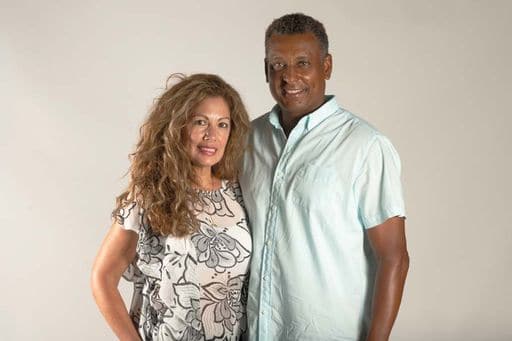
Maurie Ladson is a Program Director at Corners Outreach, an organization providing a multigenerational approach to helping underserved children with specialized tutoring. Parents are given assistance with career paths, workshops, unemployment and anything they may need to navigate in the education system. Their goal is to achieve a 100% high school graduation rate among the students they serve.
Ladson clarified underserved as “communities or people living amongst us who don’t have all the necessary resources.” She explained, “They may not be earning a living wage. A lot of them are immigrant families. There’s a challenge with education and the language.”
Elementary, my dear
By focusing on elementary school students, the intention is to prepare them for success in middle school and high school. “Then hopefully, to higher learning, either a four-year education or, sometimes, they prefer to do some kind of trade,” Ladson said.
“We’re not focused on one demographic,” she continued. “We welcome all the children who need assistance. The mix varies. In Norcross and on our DeKalb side, we have a high percentage of Latino children. At our Meadow Creek location, there’s a mix of children — Indian, American, Hispanic.”
The Corners Outreach offices are located in Peachtree Corners. Ladson said that Executive Director Larry Campbell liked the name, “as the goal is to touch “every corner” of the community.” The organization partners with Title 1 schools in DeKalb and Gwinnett counties, including Peachtree Corners and the surrounding areas, and helps 450 families/children.
“We work with them during the normal school year; we provide after-school tutoringfor two and a half to three hours. We’re supplementing and enhancing what the school is teaching,” Ladson said. “There’s a big focus on reading comprehension and math. We then provide nine weeks of summer camp which focus on reading, math, games and a craft.”
School principals identify the children in most need. There is also input from counselors, teachers, teacher liaisons, center coordinators and ESOL [English to speakers of other languages] coordinators. “We also have volunteers that play a key role in our success. We’re so thankful,” she said. “Schools like Wesleyan, GAC, Perimeter Church and individuals in our wonderful Peachtree Corners community come out and volunteer their time.”
Masks with a purpose
Due to COVID-19, Corners Outreach was unable to tutor or assist families in person for some time. “We began communication via Zoom, WhatsApp, video chat, telephone calls. There was a big need to assist in setting up Internet. Many of the families didn’t have it,” she continued.
“Our organization was able to place Chromebooks in the community for children to be able to do their homework. It was still challenging because in a lot of cases they’re sharing either a phone or a hot spot. With two to four children in the family of various ages, needing to do homework with one device, that was difficult.”
To help underemployed parents, the organization developed Masks with a Purpose. After surveying the parents, they found they had 101 mothers with sewing skills that could be used to provide much-needed masks in the community.
“They sew masks and earn a living wage, $4 per mask,” Ladson said. “We launched the Corners Store on June 22 so people can go online and purchase a mask to support our cause.” To purchase a mask, visit cornersoutreach.org. If you don’t need a mask, you can help by giving a donation.
“We’re looking to donate 1,000 masks to farmworkers and 10,000 masks to children in poverty, who can’t afford to buy three or four masks or have the throwaways,” she said. It’s a great cause,” she said. You can donate masks to the effort through their website.
Beauty in all colors
“I’m Mexican American,” Ladson said. “I’ve been in Peachtree Corners for 20 years. My husband is black, dark-skinned African American. People might look at us a little differently. I’m different and I’m good with it.” She and her husband Ron recently celebrated 20 years of marriage.
Having frequented several places of worship over the years, they most recently identify as Protestant and have been attending North End Collective.
Ladson said she witnessed some social injustice in the workplace during her career in banking. A Peruvian teller was the number one salesperson in the bank, exceeding her numbers, yet it was an under-performing white American teller who inexplicably was moved to another location and offered a raise.
“I think in Georgia, Atlanta and in Peachtree Corners, we still have room to grow,” she continued. “I’ve seen a different level of acceptance, if we’re going to call it improvement, absolutely.”
Miriam and Ed Carreras
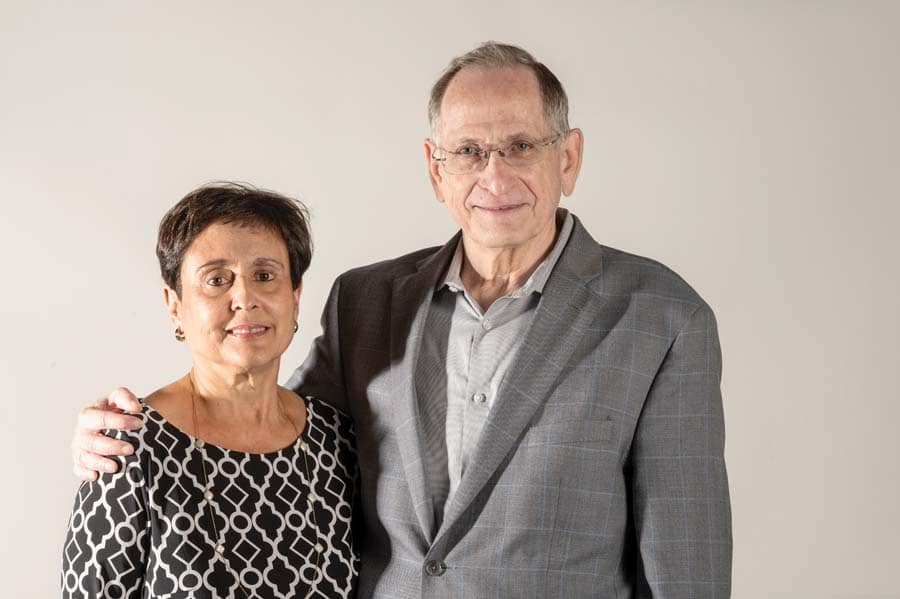
By pure coincidence, Miriam and Ed Carreras shared a similar history predating their marriage of 48 years. They both left Cuba with their families at a young age, and within five to seven years, they became naturalized U.S. citizens.
After a 20-year career as a microbiologist at Children’s Healthcare of Atlanta, Miriam is now a Realtor with RE/MAX Prestige. “I guess, given my name and former clients, I get quite a few referrals from Spanish-speaking buyers. I would say most of my clients right now are Hispanic,” she said. Hispanics, who can identify as any race, make up 15.2% of the population in Peachtree Corners.
Miriam works in residential real estate, both on listings — people selling their homes — as well as helping buyers find their dream homes. Being bilingual, she is a huge asset to the community. She is able to help English and Spanish speakers navigate the sometimes-challenging waters of real estate.
A home is one of the biggest and most important investments a family will ever make, and Miriam is happy to provide her clients with excellent customer service, every step of the way.
Ed was an attorney with The Coca Cola Company for about 20 years. He retired from the company in 2003 and joined a law firm. He retired from the firm in February of this year. “We were supposed to travel, and now we’re homebound because of COVID-19,” he said.
As an attorney, much of his work was international. “I dealt with a number of countries, like Japan, countries in Europe, in Latin America, and so on,” Ed shared.
He served on the Board of Goodwill of North Georgia for a number of years and was Chair of the Board for two years. “Goodwill had a significant relationship with the Hispanic community. One of the things I got involved in was developing a robust system for their strategic plan,” Ed said.
In studying the projection of population changes, he and his fellow board members identified the important growth of the Hispanic community and the need for more Hispanic contacts and people with language skills in the organization.
A home in Peachtree Corners
The Carreras family built their home in Neely Farm in 1998. Both are happy with the amount of diversity in Peachtree Corners. “I think there is a good mix of people. You see a nice diversity of cultures represented here,” Ed said. “My experience is more in the restaurants since I like eating. We’ve gone to a lot of different types.”
“I think there’s pretty good diversity,” Miriam added. “Even in our subdivision, we’re diverse.”
They haven’t had any negative experiences because of their ethnicity in recent years. As a teenager, Ed recalled an incident at a restaurant in Miami. His family was speaking Spanish, and a man at a nearby table addressed them, saying, “Go back to Cuba!”
“My father was surprised. He turned around and in perfect English said, “I’m sorry, does it bother you if we speak Spanish?” The guy ended up apologizing,” Ed remembered. “I was 13 or 15 at the time. It stuck in my mind because my father handled it so perfectly. The guy said, “You speak English very well.” My father said, “Yes, I was educated in the United States. I went to an Ivy League school.” The guy just kept shrinking.”
Ed said that everyone carries prejudices based on faulty stereotypes. “From my own experience, the best way to eliminate prejudice is to be made aware that the stereotype supporting the prejudice is not correct,” he explained. “Anything that helps an individual realize that the stereotype is wrong should help in reducing prejudice.”
“Education highlighting non-stereotypical members of a group could help,” Ed suggested, “as well as the promotion of events that bring members of diverse groups together in a social setting.”
Joe Sawyer
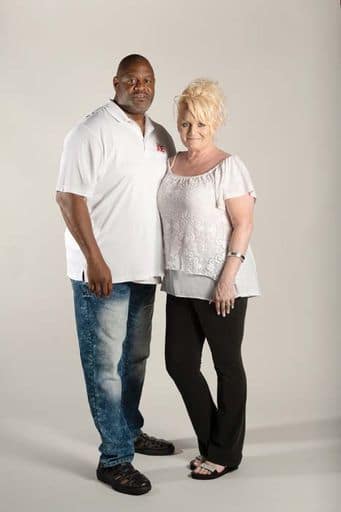
As the city is building a physical pedestrian bridge over Peachtree Parkway, resident of 25 years and equity warrior, President and Cofounder of Bridges Peachtree Corners Joe Sawyer has been launching intensive volunteer efforts to build metaphorical bridges between races and social classes in the city. “I guess you can say it’s about black and white; we’re trying to bring equality up to where it needs to be,” he shared.
Bridges is a non-profit funded by grants and generous donations from the community. The board is made up of a diverse group who share Sawyer’s mission to close the gap between the affluent and the less affluent parts of town. They’ve been working on racial diversity and economic disparity since 2013.
Through school counselors, they identify needs at Peachtree Elementary and other area schools, assisting in any way they can — from electric pencil sharpeners in the classroom to Christmas dinners for families. They’re currently partnering with xfinity to provide internet access so children can do their schoolwork at home during the pandemic.
Affectionately known as Preacher Man, Sawyer would love to help more areas of the city reach their potential. He espouses the Holcomb Bridge Corridor Project , the city’s plan to revamp the area, and hopes it will get underway soon. “We’ve done the easy part, the Forum and Town Center area. Now let’s roll up our sleeves and do the hard part,” Sawyer said.
Sawyer comes clean
This is a man who will “tell it like it is.” He is refreshingly unafraid to level with you. Sawyer attends Life Center Apostolic Church in Dunwoody. His faith shines through in everything he touches, including his company name of 20 years, Alpha Omega Carpet Cleaning, inspired by the book of Revelation.
Since many are home with more time than usual on their hands, the pandemic has Sawyer busier than ever. “I build relationships with my customers. By the time I leave their house, I’m their friend,” he said. He also prides himself on his effective carpet cleaning services, which avoid harsh chemicals, as he is a cancer survivor.
The United Nations
Together with his wife Kimberly of 31 years (who is white), Sawyer has raised his two daughters, now 29 and 23. “She’s my backbone. She keeps me grounded,” he said. His daughters are now raising his five grandkids in Peachtree Corners.
The Sawyers have two blond, blue-eyed grandchildren and three who are light skinned black. “I’ve got everybody in my family — we have the United Nations over here,” Sawyer laughed.
In 1992 things were more challenging for biracial couples. Sawyer’s in-laws didn’t allow him into their home until two years after the marriage; now they’re the best of friends, despite many earlier battles. “They had to make sure I was going to take care of their daughter. I think that was one of the biggest issues,” he said. “Mixed marriages are more common now, and more likely to be accepted by both families, but you still have issues with certain people. I just try to keep it real and be myself.”
Sawyer shared a story from his senior year in high school (1982), when he was given an ultimatum: stop dating his white girlfriend or quit the football team. The young lady’s mom called the school because they had published a picture of them in the school magazine.
The girl’s mom had known about their relationship. In fact, they were among the few biracial couples at the time who did not hide it. But when other parents saw the photo, it became a problem. Sawyer elected to pass on what may have been a lucrative career and quit the team.
Sawyer noted that things have changed for the better. “It’s a new generation, we’re improving a whole lot,” he said. He’s unaware of any negative issues experienced by his daughters about being biracial.
While Peachtree Corners is very diverse, Sawyer said he still experiences some people who are prejudiced. During a recent job, a client had left the door open for him. It saddened him to learn that his client’s neighbor reached out to inform her, saying, “There’s a black man in your house.”
“[Racism] is still there, but overall, I think Peachtree Corners is a welcoming community. You might have some people stuck in their ways, but you just have to learn to overlook them. We stopped and we said a prayer for the lady,” Sawyer said.
He believes the cause of divisiveness is that some people don’t want to lose control of what they’ve got. “As long as we feel that one race is better than the other, we’re always going to have a problem. Both communities have work to do. Now is the perfect time for us to work on race relations in America,” Sawyer affirmed.
Preacher Man
When he was little, Sawyer told his dad, “I want to be like you when I grow up.” His father replied, “You don’t want to be like me, son, you want to be like Jesus.”
“So that’s what I try to do. As soon as we realize that we’re all made in God’s image, we’re going to be OK,” he said. “I don’t hate anybody. I try to get along with everybody. Don’t let politicians divide us any more than we’re divided. That’s the biggest problem. We listen to what’s on TV. I don’t need anybody to tell me who I like and who I don’t like.”
“We have to come together,” he continued. “I’m thankful for the friends the Lord has put in my life. We have to change our perception of our neighbors. Not all people of a different race are bad. Be there for your friends.”
Sawyer added that everyone needs to work on racism as a society. “Both the white and black communities have work to do. Now is the perfect time for us to work on race relations in America. The whole world sees what’s going on, politicians fighting over this and that. We don’t have any togetherness,” he said. “Let’s take a stand and let’s be one. We claim to be one nation under God but how can we be under God if we’re at each other’s throats?”
Father Darragh Griffith
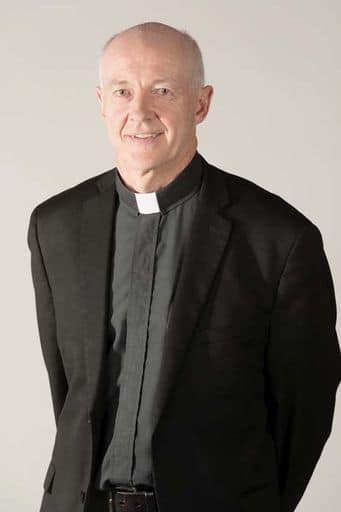
Rev. Darragh Griffith is originally from Dublin, Ireland and has been in the U.S. for 24 years. Following 10 years at Holy Family in Marietta, he’s been the pastor at Mary Our Queen (MOQ) — the only Catholic church in Peachtree Corners — for four years.
“We welcome the community to come see our new church. It’s a beautiful, traditional church based on Saint Gerard’s in Buffalo. If you’re exploring questions about the Catholic faith, we’re here,” Father Griffith offered.
Though the present church is just a year old, the parish has been here since 1998. The pews, stained-glass windows and altars were taken from the old church in Buffalo, New York.
Mass during the pandemic
“We’ve been live-streaming masses on YouTube and our website. But now we’re back,” Father Griffith said. The church has an outdoor mass on Sundays at 8:30 a.m. for people who feel more comfortable outside, and services in the church on Sundays at 11 a.m. and Saturdays at 5 p.m.
Masks and social distancing are expected at the indoor services. Seating is roped off to allow for every second pew to be occupied. “It’s working out for this time,” he said.
The parish
The makeup of the MOQ parish is quite diverse. “We’ve got people from every continent. We have a lot of Asian people from Vietnam, for example. People from the African continent, Nigeria and other countries, Hispanic and white Anglo, as well,” shared Father Griffith.
MOQ provides spiritual and financial outreach to Peachtree Corners families through The Society of St. Vincent de Paul (SVDP). Volunteers make home visits with families and individuals who call the helpline seeking food or financial help.
Since the outbreak of the coronavirus, MOQ SVDP has assisted over 150 individuals. The help line number is 678-892-6163.
The domestic church
For Father Griffith, what happens at home is as important as what happens at church. “In these times, I believe the home is crucial. Parents have a great and joyful responsibility. The family has never been as important, from where we stand, as it is now,” he said. “That’s where you can lead by witness to your children. Not so much by words, but by example. The family is crucial.”
He said that the church has always taught that the home is the domestic church. “The home is where parents hand on the faith to their children. I think that’s crucial,” Father Griffith said. “My work, the church’s work is not going to bear fruit if it’s not happening at home.”
Spreading God’s love
“It’s sad to see some of the things that we see on TV, some of the violence. It is kind of sad and disturbing, what’s happening,” Father Griffith said. “The church believes in treating everyone with respect and love. We’re a universal church. We love and accept everyone. In the Catholic faith, we’ve got people of all sorts of cultures, backgrounds, traditions.”
For a solution to today’s troubled climate, Father Griffith leads with the suggestion that we respect one another. “We’re all made in the image of God. Everyone is precious in God’s eyes. Every person is created through God’s love,” he said.
Father Griffith said that he knows it’s been hard during the pandemic for people to meet up, interact and socialize. “If we can get together and have that as a base, we’ll not be afraid of each other,” he said. “And love, that’s what Jesus spoke about, loving all people. That’s what our Catholic faith teaches us.”
Faith is critical for Father Griffith. “If we’re living our faith, that informs our decisions and our behavior. As it says in Scripture, our lives should be based on faith and our relationship with God,” he said. “Hopefully people will be open to God and to His Spirit at this time.”
Karl Barham
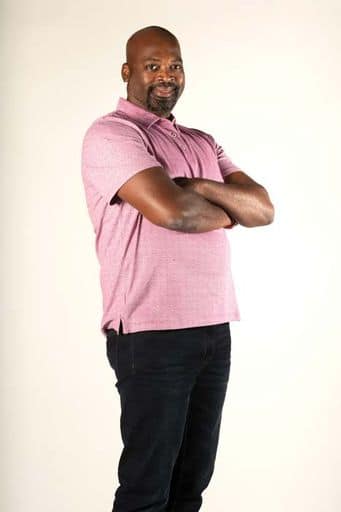
Karl Barham, President of Transworld Business Advisors of Atlanta, Peachtree, started the business with his wife, Ann, two years ago. They own a local office of the franchise in Peachtree Corners.
“We relocated from New York City, got married and started a family here,” he said. “We found Peachtree Corners to be a fabulous place to live, work and raise a family.” They’re a Christian family and attend Close Perimeter Church.
Barham explained business brokers specialize in buying and selling businesses. “We do small, neighborhood businesses — any size, up to maybe about $25 million. We arrange to find the buyers and we help them get the deal done.”
Growing up black
“I’m first generation in the U.S. My family is from Jamaica, the third poorest county in the Caribbean. They came here, raised their kids and we’ve done well,” Barham said. “But I do see, for a lot of people who are very specifically black, they’re not looking for handouts or anything, they just want the proverbial knee off the neck.”
“When you’re in a minority, you always think about race,” he continued. “Jamaica is a mostly black country. When I spend time there, everyone looks like me. In the U.S., it’s the reverse, and as you move up in corporate America, it’s even more of the reverse. It’s always there to think about.”
Barham’s dream and hope for the future is that his kids don’t have to deal with the kind of discrimination that he’s seen in his lifetime. “Changes need to happen in this generation. Will it change in my lifetime? I don’t know. I thought it would,” he said. “When I was a young kid, my dad was saying the same things. I said, “Oh, by the time I’m your age, that stuff will all be solved.” I was wrong. It isn’t.”
Starting a conversation
When Barham received inquiries on what people could do in their companies about racial justice, he thought it would be a good topic for the Capitalist Sage podcasts that he regularly hosts with Peachtree Corners Magazine publisher Rico Figliolini. So, they began a series of podcasts about diversity and race.
“It’s been a topic discussed nationally, and we said, ‘what about here? Is there anything going on locally?’” he said. They produced three episodes, with two to three guests on each. “We talked about racial and social justice in leadership and in the local community,” Barham said. “We had stay-at-home moms, elected officials, church leaders and faith leaders, just talking about what it means and how they’ve been reacting to what’s happening with Black Lives Matter. We asked: what can citizens can do individually? What can local leaders do? We just wanted to start a dialogue.”
Barham said that one of the things that’s interesting about the South is that racism is part of the history that people don’t talk about because they’re trying to be polite, yet “there’s this undercurrent of race in a lot of conversations.”
“It wasn’t too long ago in the South that some [schools] had a black prom and a white prom,” he said. “Friends are so segregated; they get together sometimes for sports, school and some social activities, but they go home to dinner and they go to church in very separate worlds. They don’t get a chance to really learn about each other, so misunderstandings can happen more easily.”
Barham shared a little game he plays. “Whenever anyone talks about race — black, white — it’s hard; it’s too charged. I change “black” to “short”. If I were to say: What if short people, anybody under 5’10”, are not able to get all of the same opportunities as everyone else? A lot of people would be REALLY upset.”
“If I was sitting at a party and people were talking about, “Oh, those short people…”, I might say, “Hey, time out! Half my friends are short.”
A note of hope
Barham said he sees a lot of people coming together to help advance social justice, including racial justice. “I think we should lift those people up. We should elect them to office,” he said.
And he sees a lot of things to be hopeful for. “When I look at the community here, I see more people of color starting businesses,” Barham reported. “In the last 10 deals that we’ve done, more than 50% of them had a person of color on one side of the deal or the other. Things are changing in society — and things can and will continue to get better.”
Diverse perspectives, the same conclusion
It’s easy to see why niche.com gives Peachtree Corners an A+ for diversity. Let’s move forward holding hands (figuratively, of course), leaving injustice behind and making the fabric of Peachtree Corners stronger and more beautiful than ever before.
“We must continue to go forward as one people, as brothers and sisters.” ~ Rep. John Lewis
Related
Patrizia hails from Toronto, Canada where she earned an Honors B.A. in French and Italian studies at York University, and a B.Ed. at the University of Toronto. This trilingual former French teacher has called Georgia home since 1998. She and her family have enjoyed living, working and playing in Peachtree Corners since 2013.

Business
Two Peachtree Corners Business Leaders Named Finalists for EY Entrepreneur Award
Published
2 weeks agoon
April 23, 2025
Ernst & Young’s Entrepreneur Of The Year celebrates ambitious entrepreneurs who are shaping the future
Ernst & Young LLP (EY US) recently announced the finalists for the prestigious Entrepreneur Of The Year 2025 Southeast Award, and two local, Peachtree Corners business leaders — David Quirk, president and CEO of DLB Associates Consulting Engineers PC and Erin Hanson, founder and CEO of Guardian Sports — made the list.
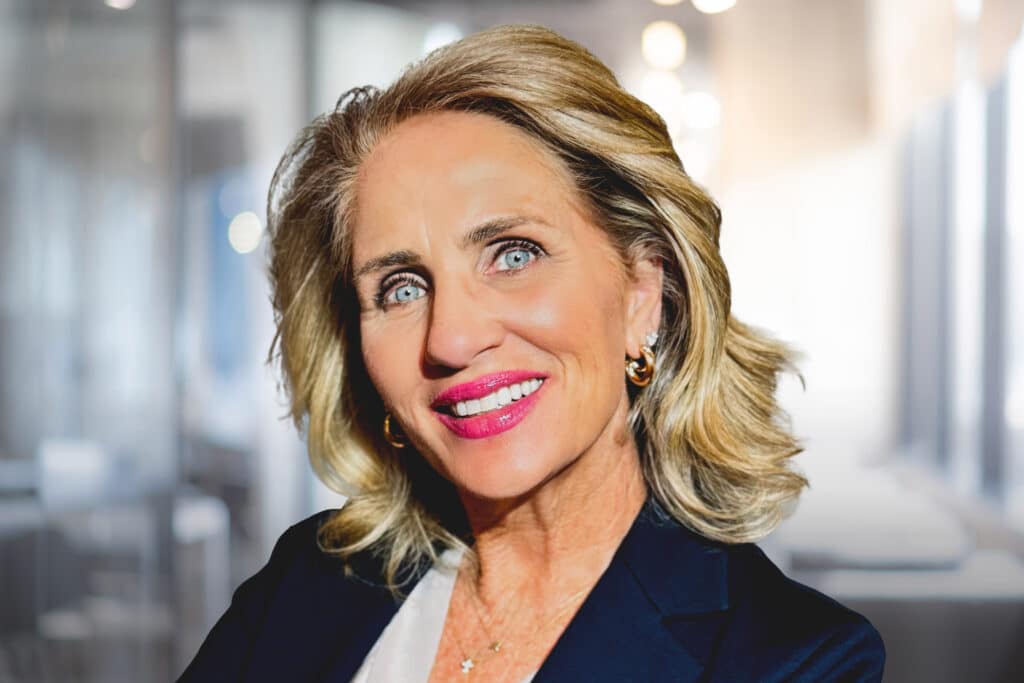
Hanson’s Guardian Sports is a family-owned company dedicated to serving athletes through safety and performance improvements in sports equipment. Major products include the Guardian Cap, PEARL ball and Guardian Infill serving the sports industry.
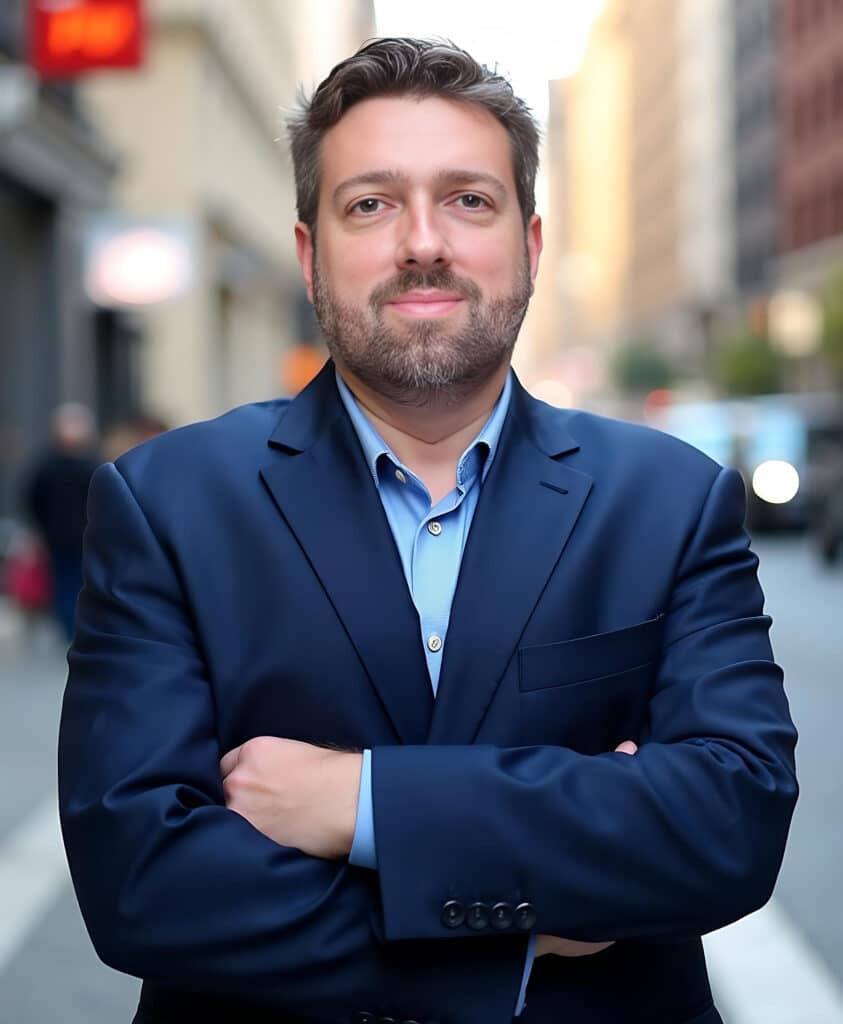
DLB Associates is a U.S.-based consulting engineering firm specializing in mission-critical and complex built environments. With more than 40 years of expertise, DLB delivers innovative, technology-driven solutions in engineering, commissioning and operations worldwide.
Celebrating entrepreneurial leaders
Now in its 40th year, Entrepreneur Of The Year recognizes the bold leaders who disrupt markets through the world’s most ground-breaking companies, revolutionizing industries and making a profound impact on communities. The program honors those entrepreneurs whose innovations shape the future and pave the way for a thriving economy and a hopeful tomorrow.
The Southeast program celebrates entrepreneurs from Alabama, Georgia, North Carolina, South Carolina and Tennessee.
An independent panel of judges selected 36 finalists for their entrepreneurial spirit, purpose, growth and lasting impact in building long-term value.
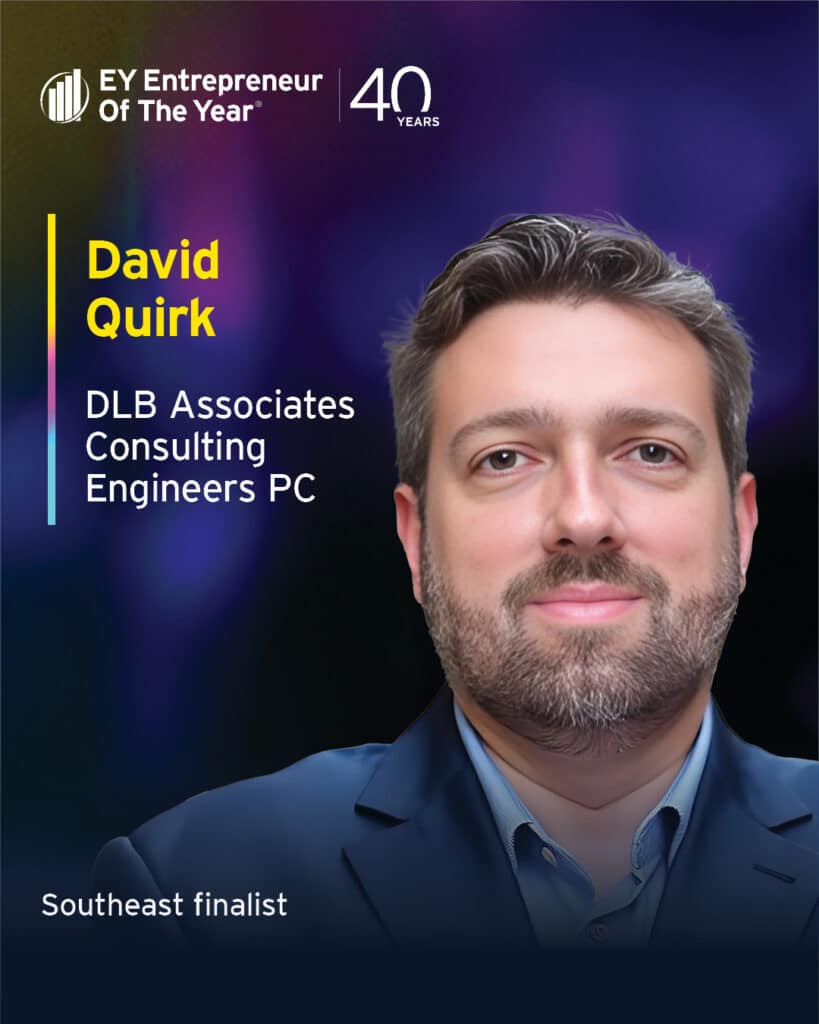

“This year’s finalists are leading examples of innovation, perseverance and resilience, illuminating paths to a brighter future for their industries and communities,” said Chevy Arnold, Entrepreneur Of The Year Southeast Program co-director.
“Their commitment to excellence transforms challenges into opportunities, inspiring us all,” added Kimberly Kicklighter, Entrepreneur Of The Year Southeast Program co-director.
Entrepreneur Of The Year honors many different types of business leaders for their ingenuity, courage and entrepreneurial spirit.
The program showcases original founders who bootstrapped their business from inception or who raised outside capital to grow their company; transformational CEOs who infused innovation into an existing organization to catapult its trajectory; and multigenerational family business leaders who reimagined a legacy business model to strengthen it for the future.
Including Quirk and Hanson, the 2025 Southeast finalists are:
- Marc Hodulich | 29029 | Atlanta, Georgia
- Damon Stafford | Alpine Intel | Charlotte, North Carolina
- Lou Hensley | Aspida | Durham, North Carolina
- Matthew Dent | Buffalo Rock Company | Birmingham, Alabama
- Melanie Little | Colonial Pipeline Company | Alpharetta, Georgia
- Will Bartholomew | D1 Training | Franklin, Tennessee
- Rene Diaz | Diaz Foods | Atlanta, Georgia
- David Quirk | DLB Associates Consulting Engineers PC | Peachtree Corners, Georgia
- Markus Scott | EyeQ Monitoring | Atlanta, Georgia
- Jon Gosier | FilmHedge | Atlanta, Georgia
- John Fitzpatrick | Force Marketing | Atlanta, Georgia
- Dr. Barry Patel | Galt Companies | Atlanta, Georgia
- Dr. Wade Smith | Galt Companies | Atlanta, Georgia
- Charles Gillespie | Gambling.com Group | Charlotte, North Carolina
- Kevin McCrystle | Gambling.com Group | Charlotte, North Carolina
- Mike Griffin | Griffin Brothers Companies | Cornelius, North Carolina
- Erin Hanson | Guardian Sports | Peachtree Corners, Georgia
- Dan Beem | Hissho Sushi | Charlotte, North Carolina
- Aaron Siegel | Home Team BBQ | Charleston, South Carolina
- Marc Murphy | Ignite Digital Services | Charleston, South Carolina
- Miller Chalk | Inglett & Stubbs, LLC | Mableton, Georgia
- Liza Rodewald | Instant Teams | Southern Pines, North Carolina
- Stephen Andresen | McClancy Foods & Flavors | Fort Mill, South Carolina
- Travis LeFever | Mission Mobile Medical Group | Greensboro, North Carolina
- Cyrus Mojdehi | Northway Homes | Charlotte, North Carolina
- Connor Ryan | NutraSky | Alpharetta, Georgia
- Fritz Owens | OTR Solutions | Roswell, Georgia
- Christopher Chuang | Relay, Inc. | Raleigh, North Carolina
- Kurt Jacobus | restor3d, Inc. | Durham, North Carolina
- Tom Kendrot | Shearwater Health | Nashville, Tennessee
- Teak Shore | Southern Lighting Source | Cumberland, Georgia
- Cindy Eckert | Sprout Pharmaceuticals | Raleigh, North Carolina
- Bryan Moore | TalkShopLive Inc. | Nashville, Tennessee
- Tina Moore | TalkShopLive Inc. | Nashville, Tennessee
- Igor Marinelli | Tractian | Atlanta, Georgia
- Joan Butters | Xsolis | Franklin, Tennessee
You can learn more about the finalists at ey.com/en_us/entrepreneur-of-the-year-us/southeast/winners-finalists.
Regional award winners will be announced on June 25 during a special celebration. The winners will then be considered by the national independent panel of judges for the Entrepreneur Of The Year National Awards, which will be presented in November at the annual Strategic Growth Forum®, one of the nation’s most prestigious gatherings of high-growth, market-leading companies.

About Entrepreneur Of The Year
Founded in 1986, Entrepreneur Of The Year has celebrated more than 11,000 ambitious visionaries who are leading successful, dynamic businesses in the U.S., and it has since expanded to nearly 60 countries globally.
The U.S. program consists of 17 regional programs whose panels of independent judges select the regional award winners every June. Those winners compete for national recognition at the Strategic Growth Forum® in November where national finalists and award winners are announced.
The overall national winner represents the U.S. at the EY World Entrepreneur Of The Year™ competition.
For more about the award, visit ey.com/us/eoy.
Related
Business
SCB Construction Group Partners with CGA Reps on New Peachtree Corners HQ
Published
3 weeks agoon
April 15, 2025
SCB Construction Group, freshly rebranded from SteelCo, secures construction project with CGA Reps for new office HQ in Peachtree Corners
SCB Construction Group has announced a strategic partnership with CGA Reps to build a new office headquarters in Peachtree Corners. The project, encompassing approximately 26,000 square feet of innovative workspace, marks a significant milestone in advancing CGA Reps’ corporate vision while showcasing SBA Construction Group’s commitment to delivering transformative construction solutions.
In collaboration with Oakley Real Estate Partners — serving as developers of the project on behalf of CGA Reps — this venture reflects a united effort to bring cutting-edge design (from Smallwood architecture firm) and operational excellence to the commercial kitchen equipment industry.
The announcement follows several high-profile projects for SCB Construction Group in 2024, including a 72,500-square-foot manufacturing center and headquarters for Process Equipment & Controls, an impressive interior build-out for Courtesy Ford Conyers’ commercial service center and the Phase 1 completion for StoreEase Loganville — recently honored as a 2024 Smart Facility of the Year by Modern Storage Media.
A bold new chapter for CGA Reps
The new 25,890-square-foot headquarters is designed to be more than just a workplace — it is envisioned as an inspiring environment that serves both client engagements and employee creativity. CGA Reps is recognized as an industry expert in commercial kitchen equipment, representing leading manufacturers, warehousing, distributing and installing everything from fryers to commercial walk-in freezers.
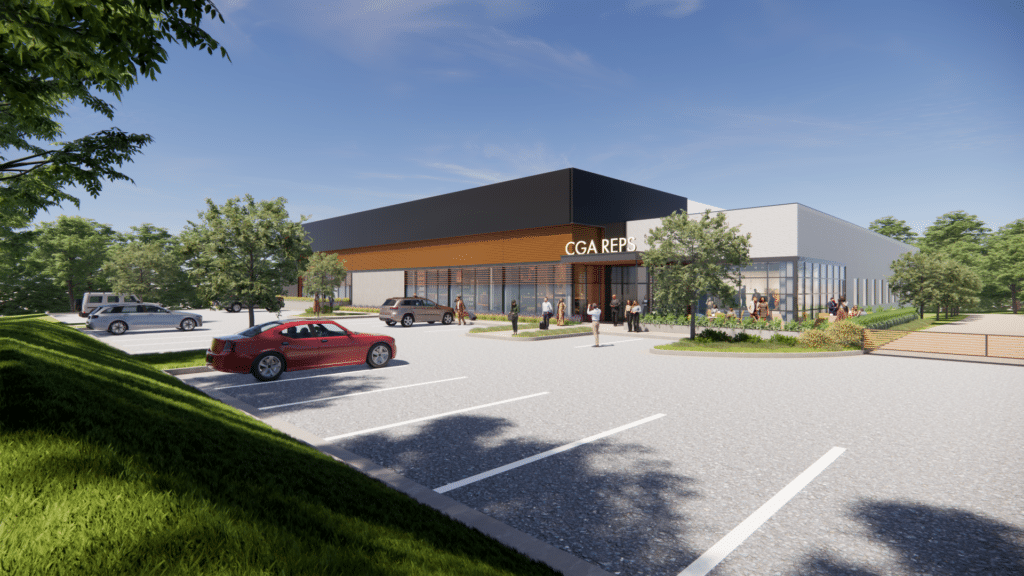
The facility’s design reflects this expertise, featuring a dedicated approximately 9,000-square-foot showroom kitchen that will host equipment demonstrations, tradeshows and webinars. This dynamic space will allow CGA Reps to showcase its comprehensive product range and provide clients with hands-on experiences of the latest commercial kitchen innovations.
A standout feature of the project is its innovative approach to stormwater management. With the site comprising only three acres, sufficient space for a traditional detention pond does not exist. To overcome this challenge, the design includes an underground detention system located beneath the truck court to efficiently handle all stormwater runoff.
This solution not only maximizes the use of the available land but also reinforces CGA Reps’ commitment to sustainable practices.
“We are excited to embark on this project with CGA Reps,” said Jay Bailey, CEO of SCB Construction Group. “This partnership underscores our commitment to customer excellence in design and construction, and it is a testament to the trust our clients place in our ability to deliver projects that not only meet but exceed expectations.”
Delivering excellence through proven expertise
SCB Construction Group’s track record in 2024 has been nothing short of remarkable. Earlier in the year, the company completed a 72,500 square foot manufacturing center for Process Equipment & Controls, integrating office space within a dynamic production facility.
This project was celebrated for its innovative design that balanced operational efficiency with a modern aesthetic, utilizing IMP panels to mimic tilt-up concrete, setting new standards for manufacturing environments.
Similarly, the interior build-out for Courtesy Ford Conyers’ commercial service center demonstrated SCB Construction Group’s ability to transform conventional spaces into functional and attractive environments that cater to both customer and staff needs.
The company’s commitment to quality and precision was again evident in the successful Phase 1 completion for StoreEase Loganville. This project, which recently earned the distinction of a 2024 Smart Facility of the Year by Modern Storage Media, highlights SCB Construction Group’s forward-thinking approach to construction and design, incorporating smart technologies and design that enhance sustainability and operational efficiency.
A rebranding that reflects a vision for the future
In a move that signals its evolution and growth, SCB Construction Group has recently rebranded from its former identity, SteelCo Buildings, as it spins off its construction division. This strategic rebranding is not merely cosmetic — it represents a renewed commitment to capabilities, credibility and client-focused service.
The refreshed brand is anchored by a new tagline “Deep Expertise, High Expectations” and a clear brand promise that communicates the company’s mission: to craft exceptional construction experiences based on precision, innovation and trust.
“Our rebranding is about more than just a new name or logo; it’s a renewed promise to our clients and communities,” explained Robert Lee, marketing director at SCB Construction Group. “We believe that our updated brand identity, including our invigorated tagline and mission statement, encapsulates our dedication to pushing the boundaries of design and construction. It reflects our commitment to creating spaces that are as inspiring as they are functional.”
Transforming spaces to inspire and connect
The new headquarters for CGA Reps is expected to become a landmark facility in Peachtree Corners. Beyond its impressive architectural design and advanced construction techniques, the building is planned as a hub for innovation and collaboration.
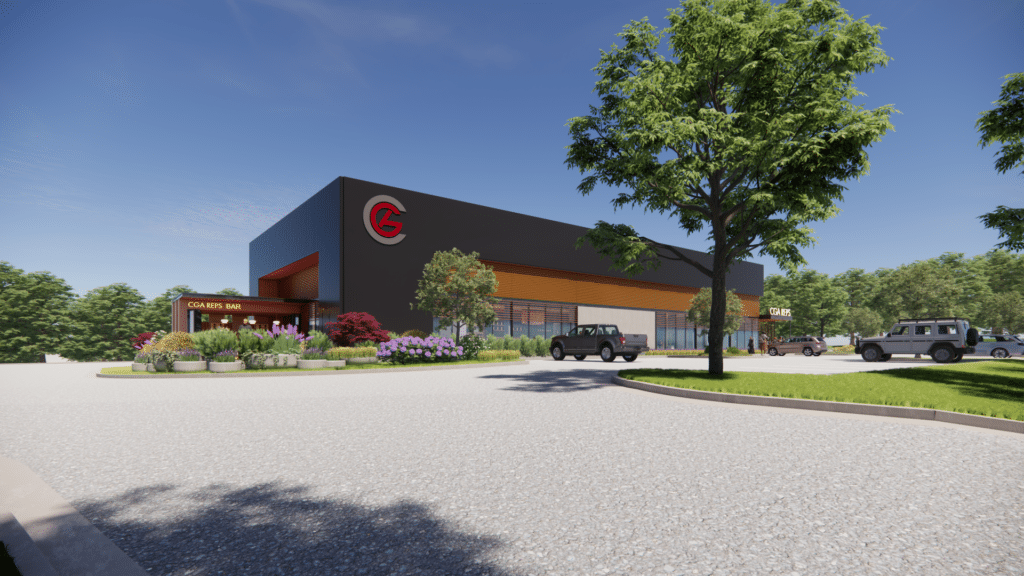
The interior build-out will include dynamic client reception areas, interactive meeting rooms, and dedicated spaces designed to foster creativity and teamwork among employees. The layout is crafted to ensure that every area of the facility contributes to a productive and inspiring work environment.
“By investing in this state-of-the-art facility, CGA Reps is making a strong statement about the future of work,” said Bryan Young, VP of construction at SCB Construction Group. “Our team is dedicated to designing and building spaces that not only serve the immediate needs of our clients but also create environments that motivate and inspire. The new headquarters will be a testament to that vision.”
Looking ahead
The partnership between SCB Construction Group and CGA Reps marks a significant step forward for both companies. As SCB Construction Group continues to build on its legacy of excellence and innovation, this project is poised to set a new benchmark for modern office headquarters design in the region.
With a strategic focus on creating spaces that inspire, connect and drive success, the future looks promising for both SCB Construction Group and its esteemed partner, CGA Reps.
For more information on the new headquarters project or to learn more about SCB Construction Group’s portfolio, visit scbcg.com.
Related
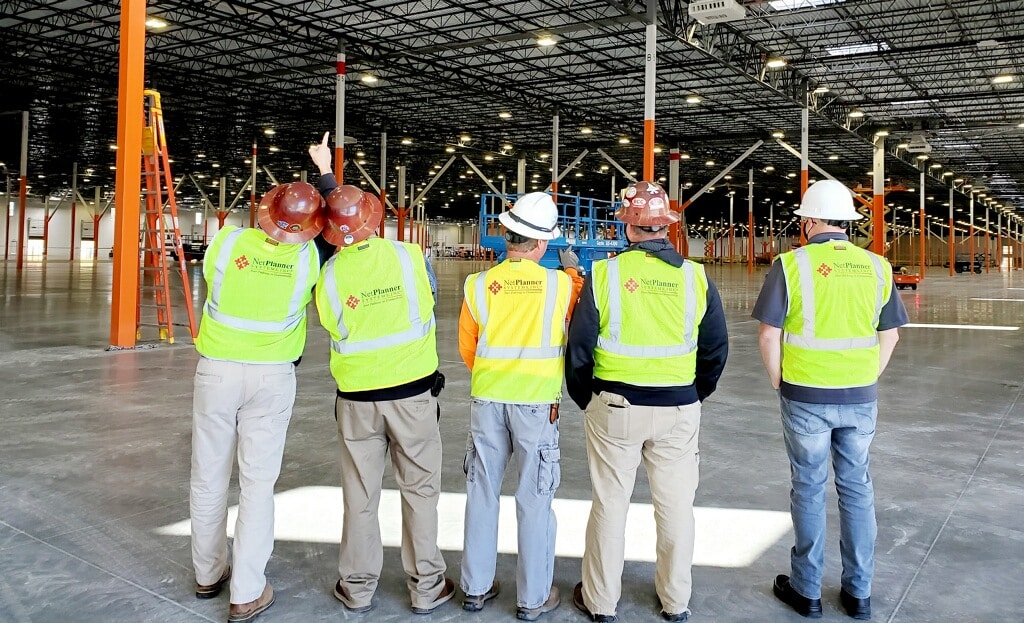
How NetPlanner Systems powers businesses with tech-forward services and solutions
Anyone who’s been in business for more than a decade — maybe even less than that — can attest to the changes one must make to stay relevant. Such is the case with NetPlanner Systems.
During a discussion recently with Southwest Gwinnett magazine, CEO Clint Bridges explained that NetPlanner was an outgrowth of another company he started in 1983, initially in Mableton and later moved to the Peachtree Corners/Norcross area in 1985.
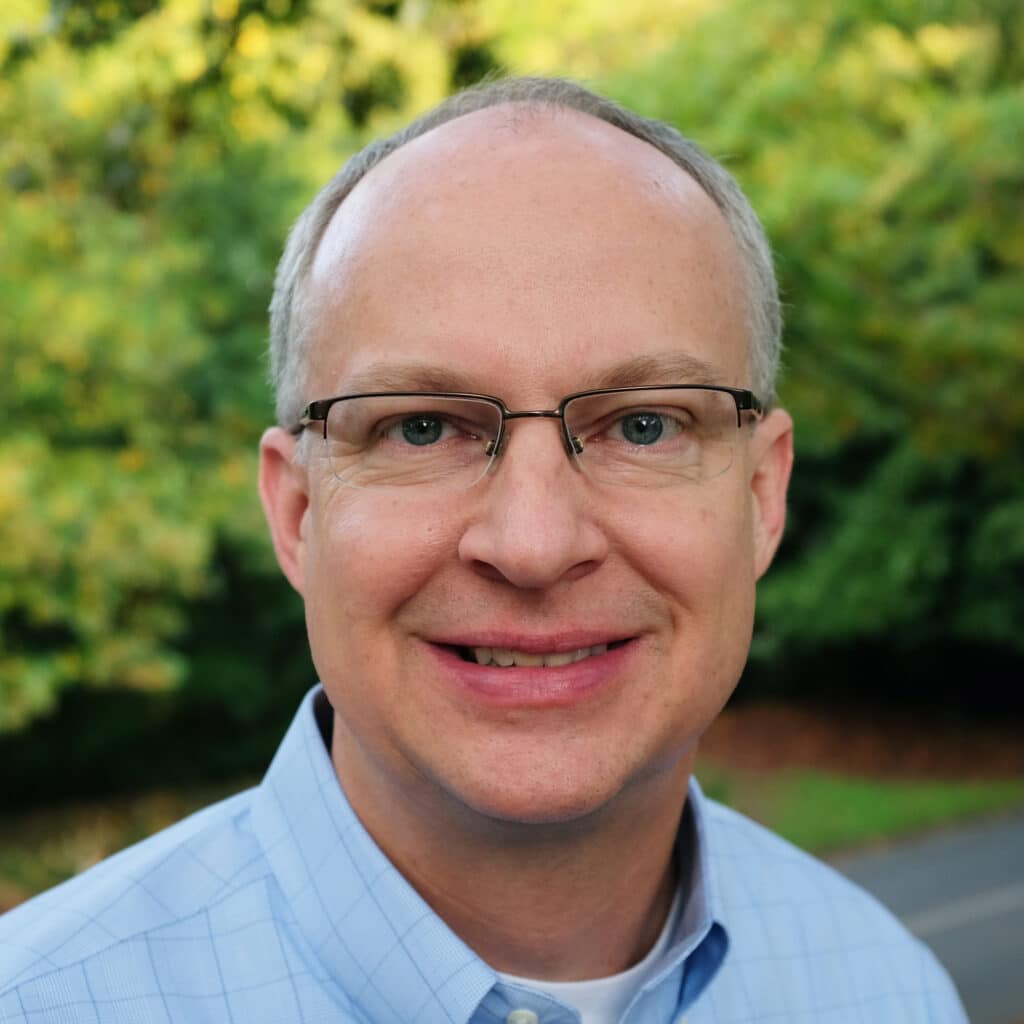
The first company manufactured printer and modem cables, which were in high demand during the early personal computer market boom. The company transitioned from manufacturing to providing networking services in 1987 due to the shift in the market and the desire to stay in a service-oriented business.
“Those cable assemblies sold for higher margins in the early days of the PC market. Rapidly, a lot of that manufacturing went offshore, and the margins went down, and a number of my competitors decided just to become brokers in that field,” said Bridges. “I didn’t really want to become a broker. I am very technical, very hands on, and so I sold that first business in 1986.”
Services and market reach
The contacts and trust he’d built with customers prompted him to go another route.
“Local area networking was starting to come into the marketplace, and so instead of manufacturing cable assemblies, we started to do networking, which involves putting network cabling and related hardware into commercial buildings,” he said.
NetPlanner built some of the earliest networks in the area.
“This was back in the days before there were any standards for this,” Bridges added.
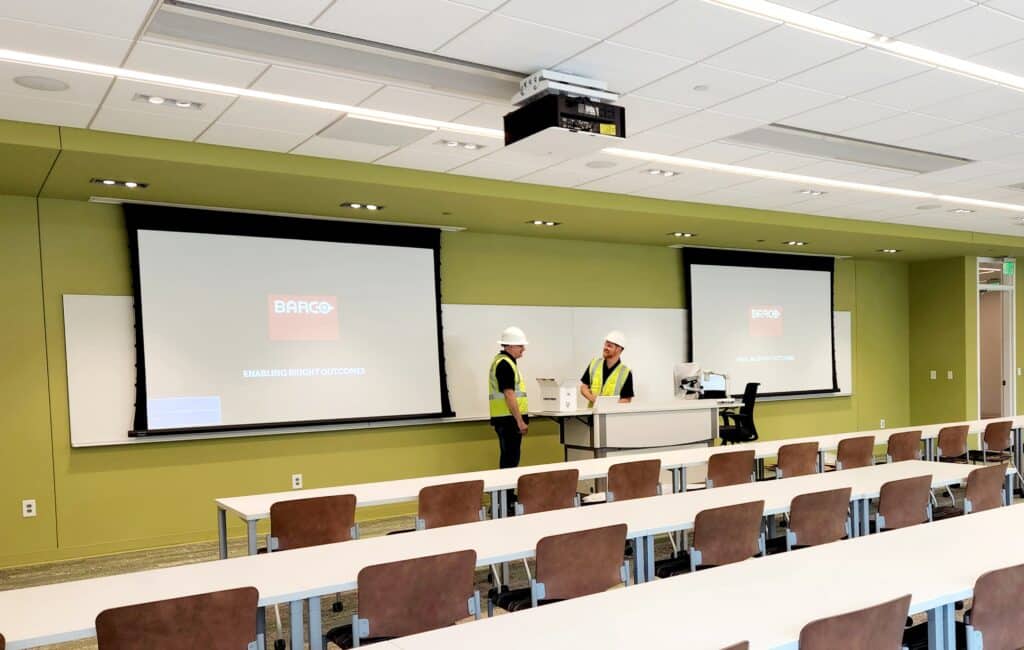
Today NetPlanner provides complete design services, installation and ongoing maintenance of all communication systems in commercial buildings, focusing primarily on hardware. The company also runs a network services division that offers help desk support for small businesses without their own IT departments.
“That’s what really caused NetPlanner to be formed in 1987 — the desire to be in a service business and to provide a service that was still working with the same sorts of clientele in the computer marketplace,” he said.
NetPlanner works with a variety of commercial enterprises, as well as K-12 schools, colleges, universities and large hospital systems.
“Everything that wasn’t on the IP network in a commercial building before 1990 started to fall onto the IP network,” said Bridges. “Things that we never anticipated, including telephone systems, which were totally separate back in the 1980s, now all operate over IP-based systems.”
In addition, things like security and access control, video surveillance and similar systems all work on IP networks.
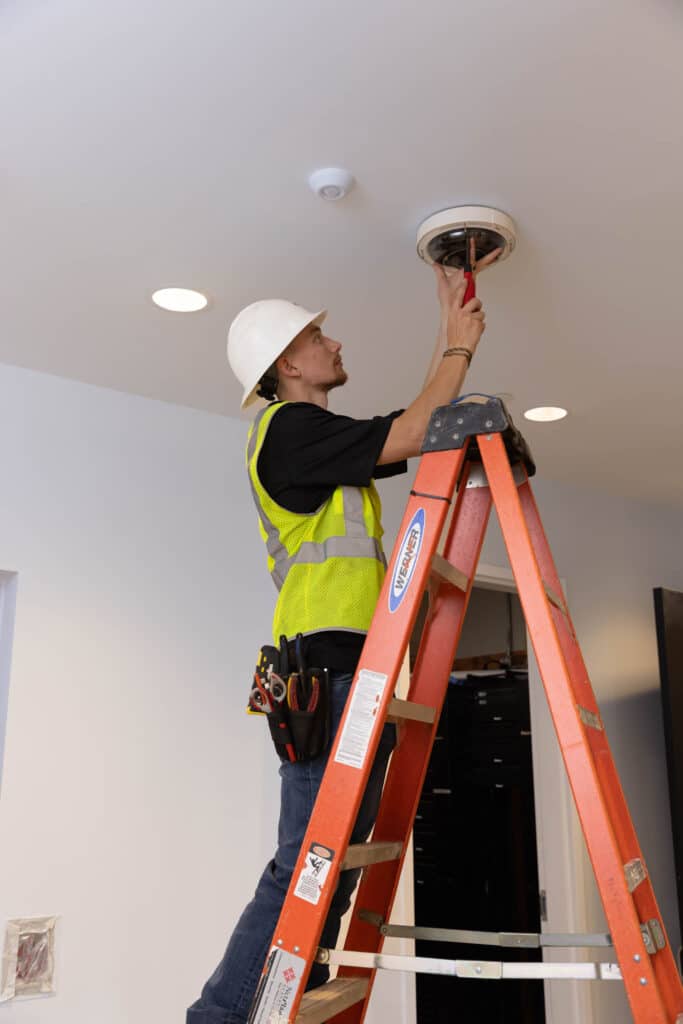
“So as time has gone on, NetPlanner has received requests from our customers to install these other systems, and we’ve embraced the other technologies that are now a part of almost all commercial buildings,” he added.
The company is now expanding its services to include nurse call services for hospitals — one of the newer markets for NetPlanner.
Security and access control systems
With ever-changing business technology needs, NetPlanner successfully keeps current with trends. With heightened security concerns everywhere, the company installs biometric readers and smart camera systems for access control.
“We provide a wide variety of smart camera systems, where they can do recognition, license plate recognition, facial recognition — all those kinds of intelligent systems for commercial spaces,” he said.
Building relationships with a wide variety of manufacturers who provide different types of software systems is how NetPlanner meets the needs of its clients.
“We work with whatever software system the particular enterprise feels is most appropriate for their needs, depending on whether they want to do license plate recognition or face recognition,” said Bridges. “We do a tremendous amount of security camera work in schools all over the southeast. And that is becoming more top of mind in school systems now.”
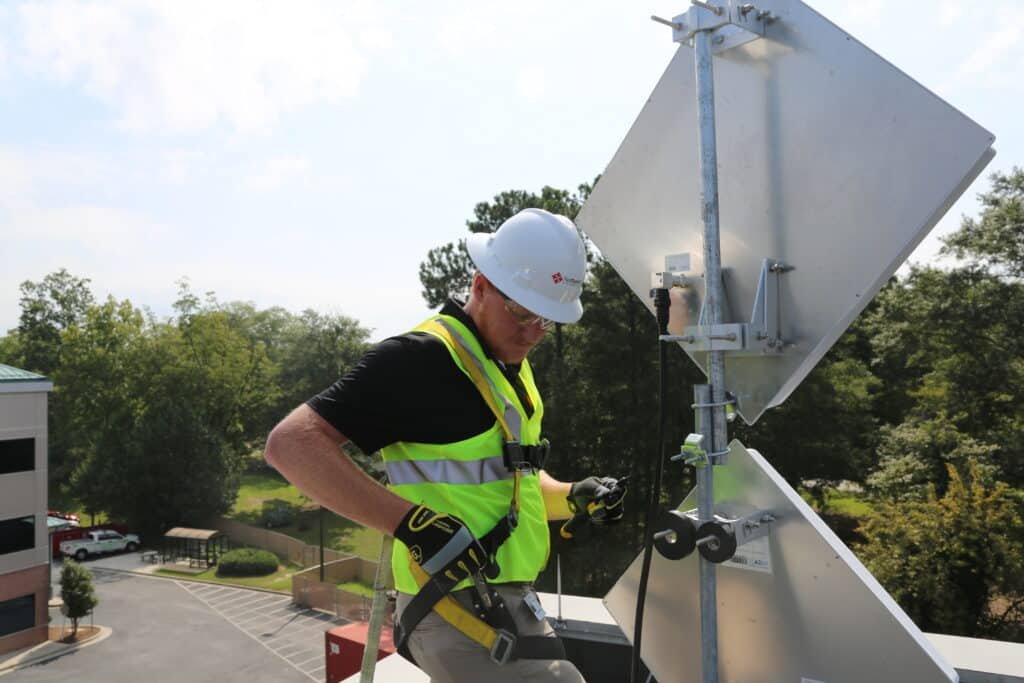
But there’s more. NetPlanner also provides distributed antenna systems (DAS) to improve cell phone coverage in commercial spaces.
“Cell carriers are concerned about not just signal strength, but also channel capacity — the ability to have a much larger number of users that might be around a particular cell tower at any given point in time,” said Bridges.
When installing a DAS, NetPlanner’s proficiency in coordinating with the carriers ensures compliance with carrier requirements and optimizes signal strength and coverage throughout the building.
Evolution of the technology-driven company
Anyone who knows Clint Bridges shouldn’t be surprised that he’s right in the thick of the technology boom. He started his first company at 19 and attended Southern Tech for a while before focusing on entrepreneurship.
“My passion for technology goes back to my earliest years. I’ve been fascinated by electronics and computers since I was very young. And I always had a home laboratory in the basement of the house as I was growing up,” he said. “I knew when I was in high school that I wanted to be an entrepreneur. During my time at Southern Tech, I started my first company and realized that’s what I wanted to do more than be at Southern Tech.”
NetPlanner is not only a local company. It operates fully-staffed branch offices in Augusta, Columbus and Savannah, as well as in Nashville, Tennessee; Raleigh, North Carolina; and Tampa, Florida. It has also provided services in every U.S. state, as well as parts of the Caribbean, Canada, London and Puerto Rico.
“We do projects all over the country, including some that are for companies that need to do national rollouts,” Bridges said. “A lot of our customers want to see the exact same approach used consistently throughout all their facilities across the country. So they’ll look to a company like NetPlanner to go and provide that consistent installation of all their communications technology needs in all their facilities across the country.”
Community commitment
Whether it’s working with manufacturing facilities and distributors, some of the largest big box organizations in the country, small retail businesses or anything in between, NetPlanner never loses sight of the local community.
With a home base in Peachtree Corners, the company has strong community involvement — including adopting a roadway section for clean-up efforts and participating in local chamber of commerce activities. NetPlanner has been active in several community events, such as shoe drives, food drives and charity walks, demonstrating its commitment to giving back.
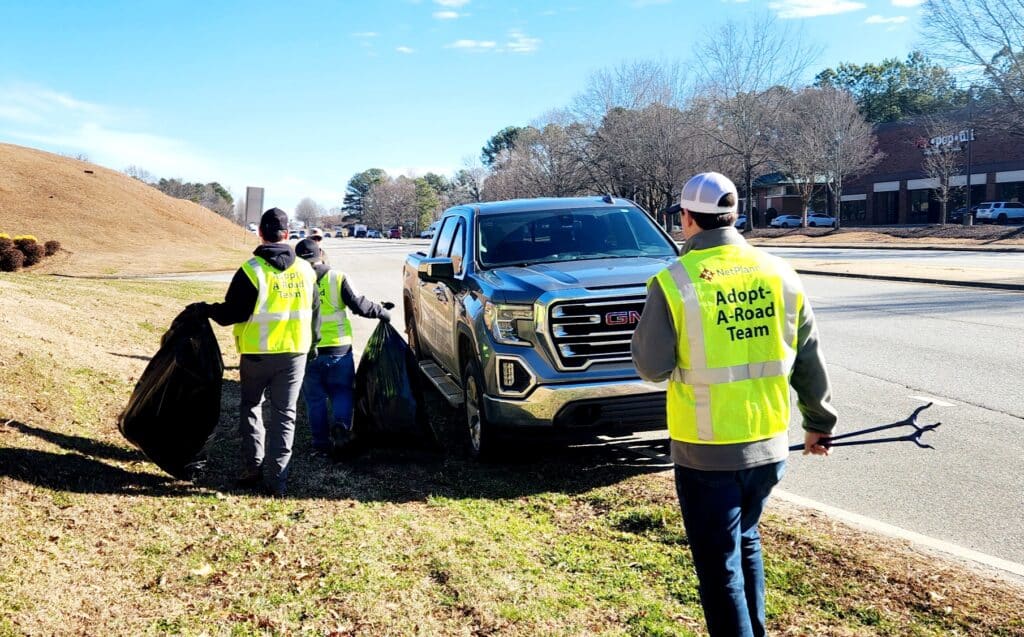
“Since 2018, we’ve adopted a roadway section in the community through Gwinnett Clean and Beautiful,” said Michelle Bruck, marketing specialist at NetPlanner. “We go out about five times a year, clear debris off of that roadway and just make sure that it’s beautiful and that it’s safer for people who are walking or driving in the area.”
Nationally, NetPlanner participates in Toys for Tots and Walk to End Alzheimer’s.
“Not only [do we give back] in our headquarters location, but all of our branch offices look for ways to help, get involved and support our communities that we’re part of,” Bruck added.
NetPlanner’s marketing efforts include social media, direct marketing and trade shows, with support from Vox-Pop-Uli for branded materials and printed media.
“When we first started using Vox-Pop-Uli, we had just a straightforward vendor relationship, but they very quickly became a partner to us,” said Bridges. “Vox-Pop-Uli has actually set up a company store on our behalf where our employees can purchase branded material, branded clothing, ball caps and those sorts of things. And they also handle printed media — things that we would use at trade shows.”
Looking forward
With technology moving at a warp speed, NetPlanner relies on a lot of repeat business.
“Bandwidth requirements are increasing year after year,” Bridges said. “Fiber optic cabling that we might have installed 10 years ago won’t support the data rates that are needed today, so it needs to be changed out in many cases.”
Many of the customers that he’s been with for several decades use NetPlanner’s services over and over.
“We’ve gone into the same building and re-cabled it over and over again as the different category levels of copper cabling have advanced,” he said. “The demands on fiber are now way beyond what they were even five years ago because the capacity has increased so much.”
And as everyone is embracing artificial intelligence, Bridges said he’s working to keep up.
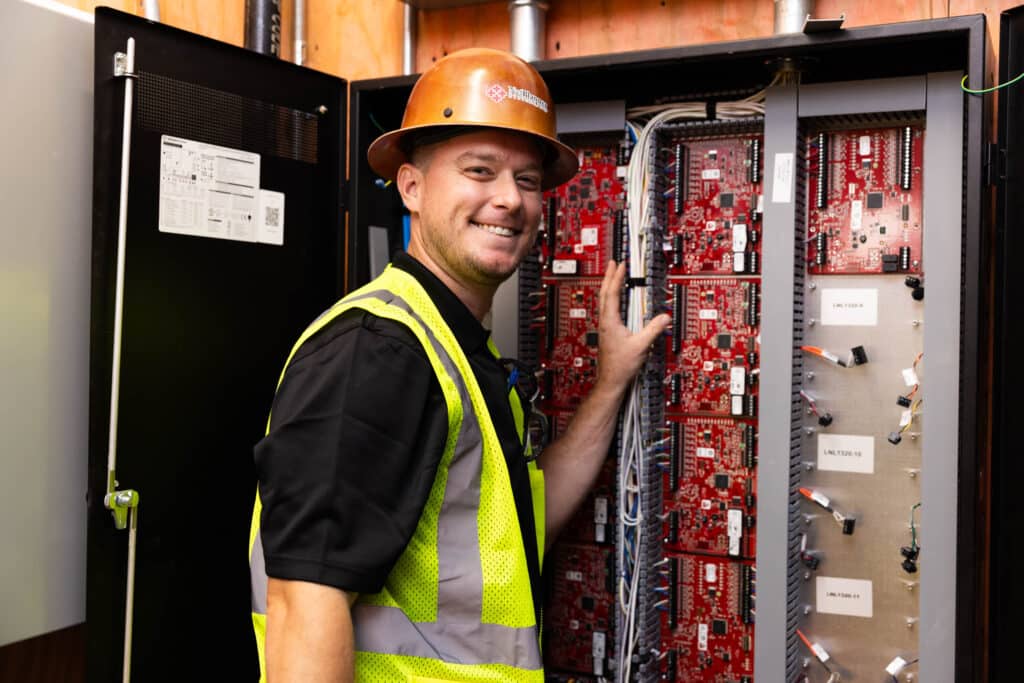
“Everyone is well aware of what’s happening in the artificial intelligence space. And what’s really amazing to us is the number of new data centers that are being built across the United States by all the major players,” he said. “It’s kind of hard to imagine even being able to keep up with all that. We do a lot of data center work ourselves, and are trying to engage with more of our customers to help build some of these newer data centers.”
He added that the artificial intelligence boom is causing so much additional strain on the network infrastructure across the country, there are concerns about how it’s all going to be powered.
“I think everyone’s concerned,” he said. “Everyone that’s involved in this is wondering how we’re going to meet the bandwidth demands, the capacity demands, the power demands to make all this work.”
Staying ahead of the curve
With decades of experience, Bridges offers advice for all types of businesses starting out — put technology needs into your business model early on.
“The companies that struggle the most with technology are the ones that wait until after everything with the building is developed and completely built before they realize that they need Wi-Fi or some other network installation done,” he said. “It’s just a much more efficient process if we’re involved as early as possible to help design the network, along with the building structure itself.”
He also emphasized the importance of staying ahead of technological advancements to avoid falling behind.
“As fast as technology moves, if you get behind the power curve, it’s really hard to catch up,” he added.
The Local Thread: This business profile series is proudly supported by Vox-Pop-Uli, championing local stories and the communities we serve.
Related
Read the Digital Edition
Subscribe
Keep Up With Peachtree Corners News
Join our mailing list to receive the latest news and updates from our team.
You have Successfully Subscribed!

GA Tech, Peachtree Corners Solidify Partnership with First-of-its-Kind Venue

Peachtree Corners City Guide 2025: Spring/Summer Digital Edition

Two Peachtree Corners Business Leaders Named Finalists for EY Entrepreneur Award

GA Tech Launches First-of-its-Kind GT Atrium in Peachtree Corners

Katherine Lafourcade — A Journey of Passion, Resilience and Giving Back

PCBA Announces 2025 Scholarship Winner

Paul Duke STEM High School Student Earns CGO Scholarship

Digital Edition

Digital Edition

World Blood Donor Day Starts Here: Theo’s Miracle, Katherine’s Mission [Podcast]

Paul Duke STEM High School Student Earns CGO Scholarship

PCBA Announces 2025 Scholarship Winner

Katherine Lafourcade — A Journey of Passion, Resilience and Giving Back

GA Tech Launches First-of-its-Kind GT Atrium in Peachtree Corners

Peachtree Corners City Guide 2025: Spring/Summer Digital Edition

Two Peachtree Corners Business Leaders Named Finalists for EY Entrepreneur Award

Light up the Corners [Video]

Capitalist Sage: Business Leadership in Your Community [Podcast]

Cliff Bramble: A Culinary Adventure through Italy

Top 10 Brunch Places in Gwinnett County

A Hunger for Hospitality

THE CORNERS EPISODE 3 – BLAXICAN PART 1

Top 10 Indoor Things To Do This Winter

The ED Hour: What it takes to Remove Barriers from Education



